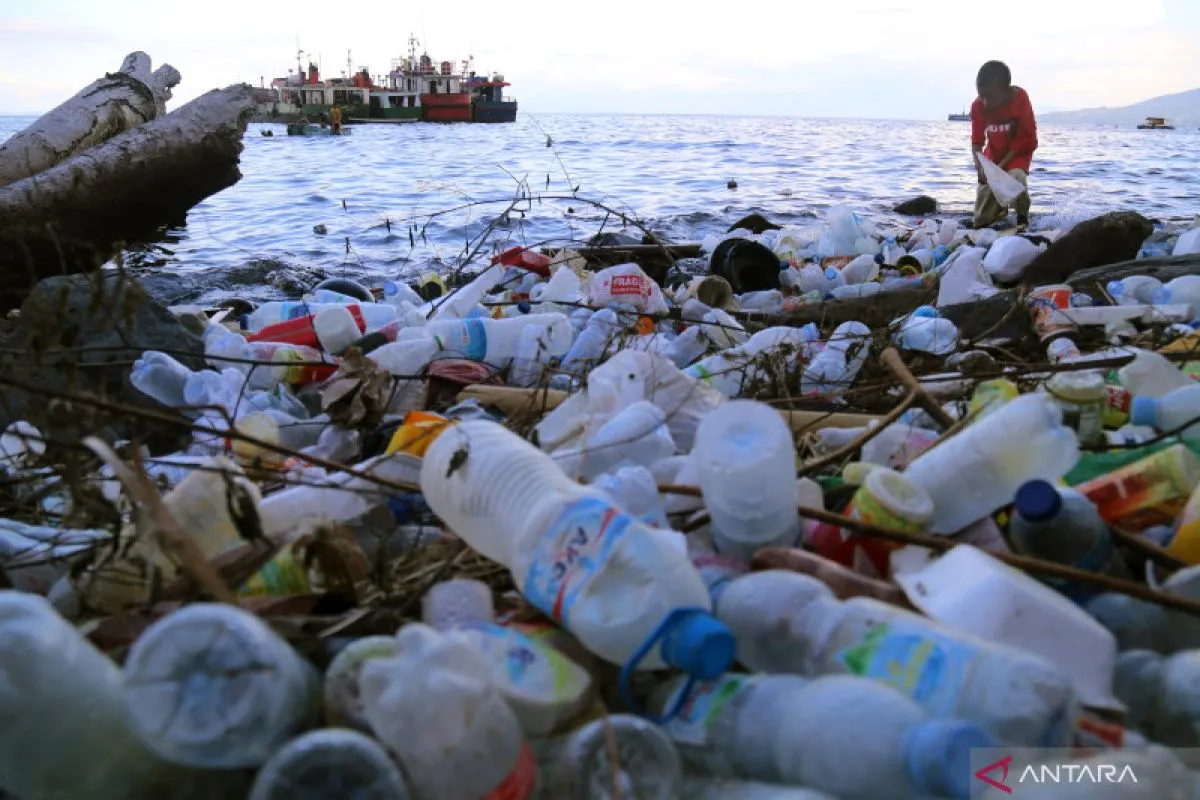Jakarta: Wakhyono Budianto from the Center for Southeast Asian Studies (CSEAS) Indonesia stressed the importance of plastic waste management due to its impact on the environment and human health.
During an online discussion held by the Environment and Forestry Ministry on Tuesday, the researcher highlighted that burning plastic waste produces combustion emissions that contain carcinogenic dioxins.
“Plastic waste that is burned, and if the smoke is inhaled continuously, can cause or trigger the growth of cancer cells in the human body,” he said.
He added that plastic waste that is not managed properly can become microplastics, which have the potential to damage the ecosystem.
Microplastics can form when plastic waste decomposes in nature, releasing tiny plastic particles into the environment. Due to their small size, plastic particles can end up in water, air, and food.
Budianto said that currently, the most possible way to manage plastic waste is with the 3R principle: reduce, reuse, and recycle.
“We have to sort plastic waste, reduce its volume, and reuse it for other functions,” he said, adding that plastic waste can also be recycled into other products.
Data from the National Waste Management Information System (SIPSN) of the Environment and Forestry Ministry shows that plastic waste accounts for 18.67 percent of the total national waste, with the majority of it being food waste.
Some 23.3 million tons of waste were produced in 2023, with 66.79 percent of the waste processed via various methods and 33.21 percent not managed properly.


